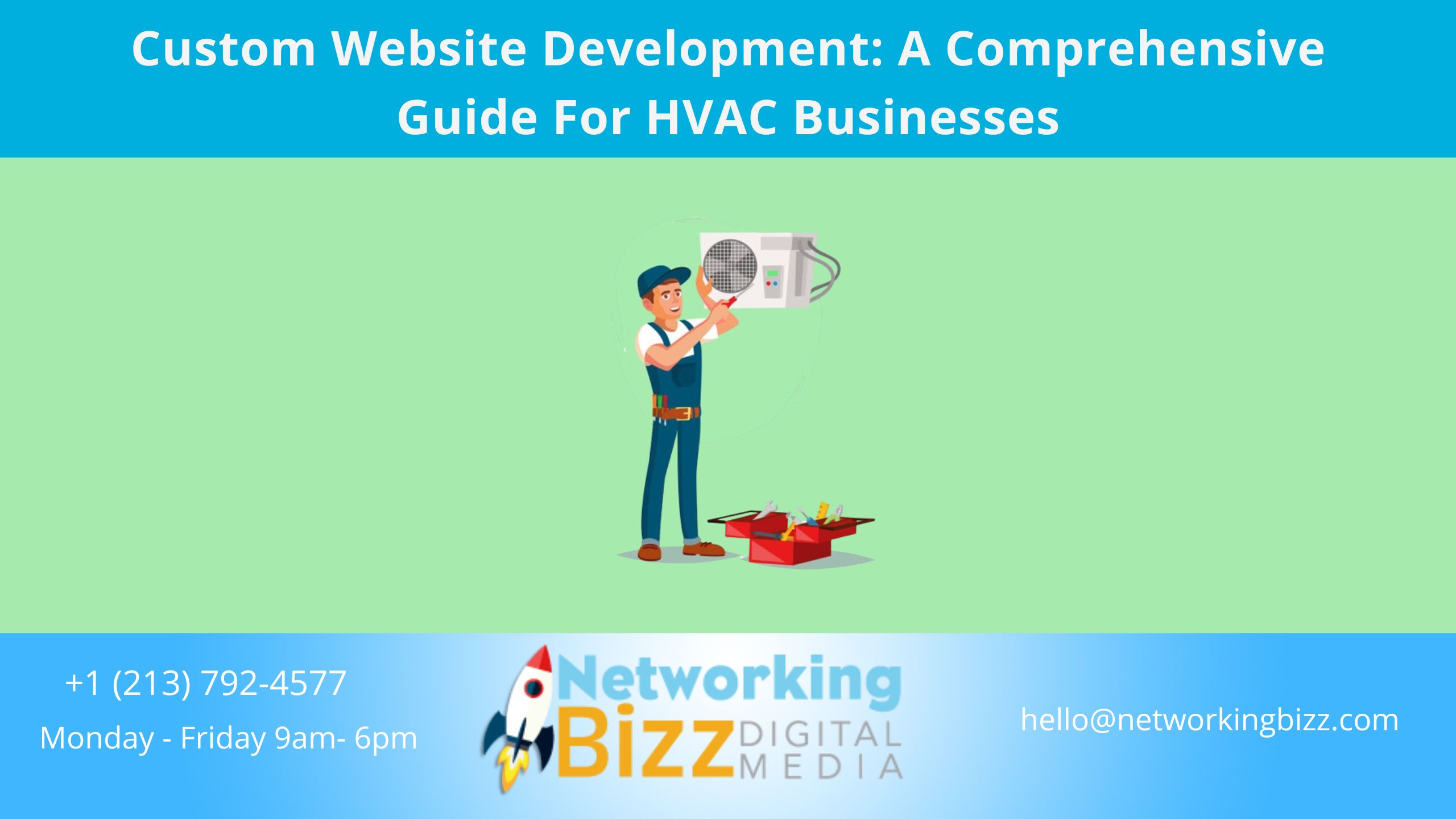Introduction
In the digital age, a strong online presence is essential for businesses across all industries, including the heating, ventilation, and air conditioning (HVAC) sectors. A well-designed website is the cornerstone of this presence, providing a platform to showcase your services, establish credibility, and attract potential customers.
However, with the competitive landscape of the HVAC industry, more than a generic website may be required. That’s where custom website design HVAC company development comes into play. In this comprehensive guide, we’ll explore the importance of custom website development for HVAC businesses and provide a roadmap for creating a tailored online presence that drives growth and success.
Key Elements Of A Custom HVAC Website
Design that is responsive: Because a rising number of people are accessing the internet from mobile devices, it is absolutely necessary to make sure that your website is fully responsive and optimized for all screen sizes. The ability to build a seamless surfing experience across desktop computers, smartphones, and tablets is made possible by a custom design, which leads to an increase in accessibility and engagement for all users.
Professional Branding: Your website should reflect the professionalism and reliability of your HVAC business. Incorporate high-quality images, custom graphics, and a cohesive color scheme that aligns with your brand identity. Clear branding elements, such as your logo and company slogan, should be prominently displayed throughout the site to reinforce brand recognition.
Simplified Browsing: Simplify navigation by grouping your information into logical categories and providing menu options that are easy to understand. It should not be difficult for visitors to locate the information that they are seeking for, whether it be information about your services, pricing, testimonials, or contact information. Avoid using dropdown menus and layouts that are overly cluttered, as these might cause visitors to become confused and make navigation more difficult.
Lead Generation Forms: Capture leads and inquiries by strategically placing contact forms, quote request forms, and subscription forms throughout your website. Keep forms concise and easy to fill out, minimizing the number of required fields to reduce friction. Consider offering incentives such as exclusive discounts or downloadable resources in exchange for contact information to incentivize form submissions.
Integration with CRM and Marketing Tools: Streamline your sales and marketing processes by integrating your website with customer relationship management (CRM) software and marketing automation tools. This allows you to capture leads directly into your CRM system, track customer interactions, and nurture leads through targeted email campaigns and follow-ups.
Data Protection and Security: Make sure that your website has robust security measures in place so that you can protect sensitive customer information and remain in compliance with data protection standards. A few examples of this would be utilizing SSL encryption, following standard protocols for the storage and administration of data, and ensuring that plugins and software are kept up to date. When visitors see trust badges and security certificates displayed, they can have peace of mind knowing that their information is properly protected.
Best Practices For Custom Website Development
Collaborate with a Professional Web Developer:Despite the fact that do-it-yourself website builders could appear to be a more cost-effective alternative, they frequently lack the customization and functionality that are necessary to design a website that is actually useful for HVAC. Establishing a working relationship with an experienced web developer who specializes in HVAC company custom website design services, understands the various issues and requirements that HVAC companies face, and is able to produce a solution that is personalized to match your specific requirements, is crucial.
Focus on User-Centric Design: Putting yourself in the position of your target audience will allow you to create your website with their requirements and preferences fully taken into consideration. To produce a pleasant user experience that increases engagement and conversion, it is important to place an emphasis on simplicity, clarity, and ease of use. The purpose of doing usability testing and collecting input from actual users is to discover areas that could benefit from enhancement and refinement.
Optimize for Speed and Performance: Page load speed is a critical factor that impacts both user experience and search engine rankings. Optimize your website for speed by minimizing HTTP requests, compressing images, leveraging browser caching, and using a content delivery network (CDN) to deliver static assets more efficiently. Regularly monitor performance metrics and make adjustments as needed to ensure optimal speed and performance.
Stay Updated with Technology Trends: As a result of the ongoing emergence of new technologies and trends, the field of web development is continuously undergoing constant evolution. To guarantee that your website continues to be relevant and competitive, it is important to stay up to date on the most recent innovations in web design, development frameworks, and programming languages. In order to maintain a competitive advantage, it is important to embrace advances such as voice search optimization, progressive web apps (PWAs), and responsive design technologies.
Regular Maintenance and Updates: Once your custom website is live, it’s essential to perform regular maintenance and updates to keep it running smoothly and securely. This includes applying software patches and security updates, monitoring website performance, fixing broken links, and refreshing content to keep it relevant and up-to-date. Consider investing in a maintenance plan or partnering with a web development agency to handle ongoing maintenance tasks.
Do You Require A Website Design That Is Tailored To Your HVAC Company?
- We help you create a bespoke website for your HVAC company.
- Absolutely fantastic and streamlined method for gathering comments.
- Do you require a highly individualized solution? We offer totally individualized solutions for the building of websites for HVAC companies.
- Our company provides exceptional services in account management and project management. More than sixteen years of experience
Conclusion
In the current digital environment, custom website design packages a bespoke website is an effective instrument for heating, ventilation, and air conditioning (HVAC) companies to develop a robust online presence, attract consumers, and propel business expansion. By making an investment in the building of a bespoke website, you will be able to create a specialized online experience that is reflective of your brand identity, improves the user experience, and differentiates you from the other businesses in your industry.
The route to a custom website is a collaborative process that needs careful attention to detail and a focus on giving value to your target audience. This process begins with the initial planning and design of the website and continues through production, launch, and beyond. Your heating, ventilation, and air conditioning (HVAC) company may take use of the potential of custom website development to accomplish its objectives and prosper in the digital age if you have the right development partner and take a strategic approach.




